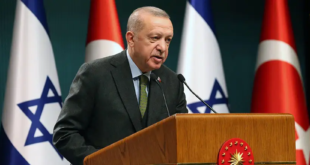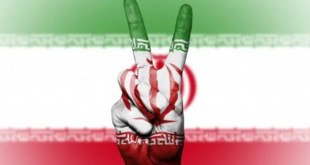EL ARISH — Farhan Adel Farhan says he was electrocuted, blindfolded and suspended by the wrists when Egyptian police questioned him over bombings in the Sinai Peninsula last October.
“Under torture, you can say things that never happened,†said Farhan, 33, who was among hundreds rounded up in the north Sinai town of El Arish after bombs killed 34 people in Red Sea resorts. Human rights groups say 2,500 were arrested.
Residents of El Arish say the continued detention of several hundred people has aggravated grievances against a government they accuse of treating north Sinai as a peripheral backwater and its people as second-class citizens.
They complain that the investigation has produced more resentment than results in an area where they have noticed pockets of radicalism, if not militancy, and where the government has focused its hunt for the bombers.
Two men from El Arish — a small Mediterranean town with a mixed population of settled bedouin, immigrants from the Nile valley and Palestinian refugees — have been put on trial over the October attacks. They say they confessed under torture.
The government says it investigates accusations of torture and prosecutes perpetrators. It has said little in public about the investigation, but has hinted that at least one of the suspects was a militant Islamist.
Officials suspect one group of being behind both the October attacks and more bombings in July in Sharm El Sheikh — another of the tourist resorts vital to Egypt’s economy. The July bombs killed 67 and were Egypt’s worst attack since 1981.
Prime Minister Ahmed Nazif told The New York Times that one theory being investigated to explain the Sharm El Sheikh bombings was that the security forces’ tough tactics had provoked a revenge attack.
Restraint
El Arish residents say police were more restrained in the investigations into the Sharm El Sheikh bombs. Security forces have been pursuing suspects in mountains south of the town.
But many in El Arish will not forget the crackdown anytime soon.
“I hate the regime… I witnessed the detentions, I saw painful images,†said Ezz Ibrahin, who voted for opposition leader Ayman Nur in Egypt’s first presidential election in September, partly in protest at the arrests.
Thousands turned out to greet Nur when he visited El Arish during the campaign. Mubarak, who won the election easily, did not visit Sinai during his campaign.
Safwat Gelbana joined the anti-Mubarak protest group Kefaya because six family members were jailed after the October bombs.
His brother-in-law, Amr Al Asmar, is still in jail, his wrists deformed by hours suspended from the ceiling, Gelbana said. “The theory of the Egyptian security is hang, hit, electrocute,†he said.
Locals also complain of high unemployment — a problem across Egypt — and denounce perceived discrimination, saying the government employs few people from Sinai in the police, armed forces or judiciary.
“The young people cannot get jobs, they cannot get married. So what do they do? Look for another way. They [radicals] say to them `Come to Allah, Islam and we will give you what you need’,†Gelbana said.
Nazif said the government would also look into social factors that might drive young men to become suicide bombers.
Radical ideas
Locals say one of the main bombing suspects, Mohammad Ahmed Saleh Fulayfel, had adopted a radical branch of Islamic thought, declaring that his mother, father and others in his village near El Arish were not Muslim.
Security forces shot and killed Fulayfel two months ago.
Some violent groups have excommunicated Muslims to justify killing them, but excommunicating Muslims does not necessarily equate with militancy, said Diaa Rashwan, a specialist on Islamic groups.
Some Muslim groups, which have declared coreligionists to be infidels, have been pacifist, he said.
The idea of excommunication had taken root among a handful of people in a town near El Arish, lawmaker Al Kashif Mohamed Al Kashif said.
“It wasn’t present in Sinai before,†he said. “The government is afraid that violence could arise from [these ideas].†Farhan, who describes himself as pious but not a member of any Islamic group, said harsh treatment by the police could turn widespread piety in north Sinai into radicalism.
“If the treatment is bad from the security [forces], it could push this piety to embrace other schools of thought — to revenge, murder. This is what we are afraid of,†he said.
“We do not want these ideas to spread.â€
 Eurasia Press & News
Eurasia Press & News



